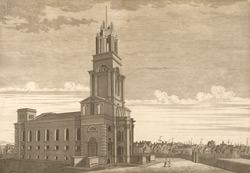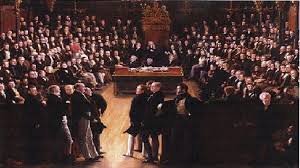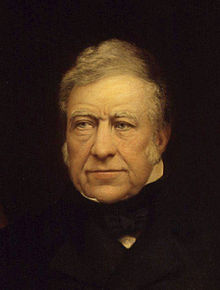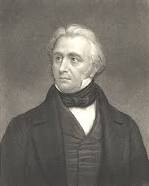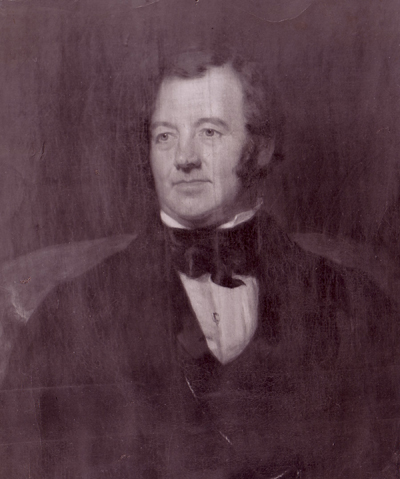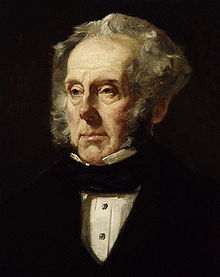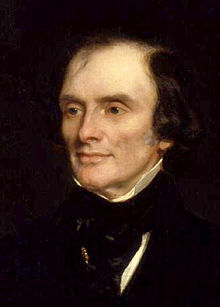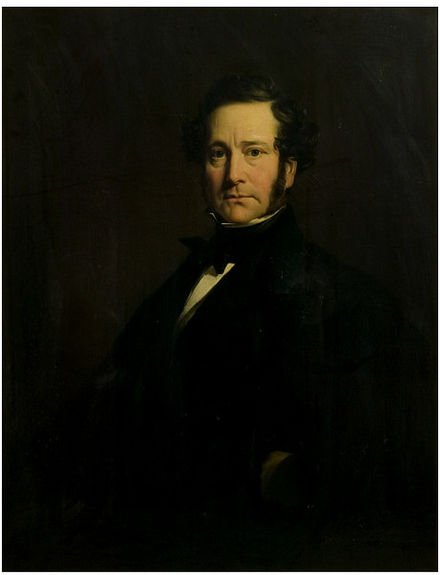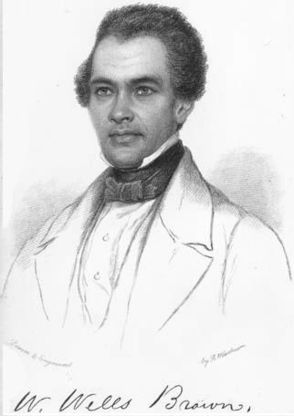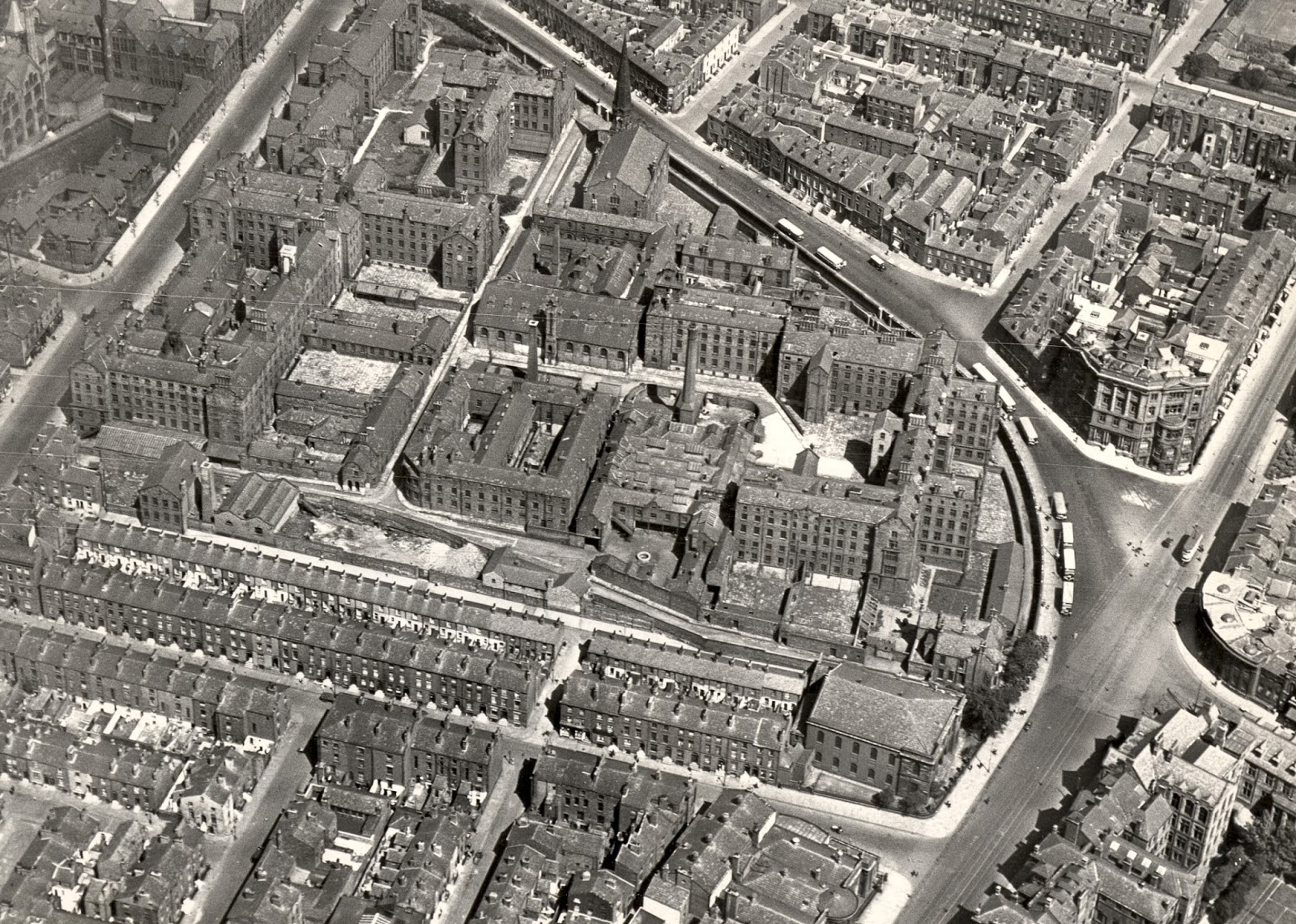
Cardinal Newman: On Monday morning [May 12] Dr. Newman went to the residence of Cardinal Howard in the Palazzo della Pigna to receive there the messenger from the Vatican bearing the biglietto from the Cardinal-Secretary of State, informing him that in a secret Consistory held that morning his Holiness had deigned to raise him to the rank of Cardinal. By eleven o’clock the rooms were crowded with English and American Catholics, ecclesiastics and laymen, as well as many members of the Roman nobility and dignitaries of the Church, assembled to witness the ceremony. Soon after midday the consistorial messenger was announced. He handed the biglietto to Dr. Newman, who, having broken the seal, gave it to Dr. Clifford, Bishop of Clifton, who read the contents. The messenger having then informed the newly-created Cardinal that his Holiness would receive him at the Vatican the next morning at ten o’clock to confer the berretta upon him, and having paid the customary compliments, his Eminence spoke as follows:
“ Vi ringrazio, Monsignore, per la participazione che mi avete fatto dell’ alto onore che it Santo Padre si è degnato conferire sulla mia persona ; and if I ask your permission to continue my address to you, not in your musical language, but in my own dear mother tongue, it is because in the latter I can better express my feelings on this most gracious announcement which you have brought to me than if I attempted what is above me. First of all, then, I am led to speak of the wonder and profound gratitude which came upon me, and which is upon me still, at the condescension and love towards me of the Holy Father in singling me out for so immense an honour. It was a great surprise. Such an elevation had never come into my thoughts, and seemed to be out of keeping with all my antecedents. I had passed through many trials, but they were over, and now the end of all things had almost come to me and I was at peace. And was it possible that, after all, I had lived through so many years for this? Nor is it easy to see how I could have borne so great a shock had not the Holy Father resolved on a second condescension towards me, which tempered it, and was to all who heard of it a touching evidence of his kindly and generous nature. He felt for me, and he told me the reasons why he raised me to this high position. His act, said he, was a recognition of my zeal and good services for so many years in the Catholic cause.
Moreover, he judged it would give pleasure to English Catholics, and even to Protestant England, if I received some mark of his favour. After such gracious words from his Holiness I should have been insensible and heartless if I had had scruples any longer. This is what he had the kindness to say to me, and what could I want more? In a long course of years I have made many mistakes. I have nothing of that high perfection which belongs to the writings of saints—namely, that error cannot be found in them ; but what I trust I may claim throughout all that I have written is this—an honest intention, an absence of private ends, a temper of obedience, a willingness to be corrected, a dread of error, a desire to serve the Holy Church, and through the Divine mercy, a fair measure of success. And, I rejoice to say, to one great mischief I have from the first opposed myself. For 30, 40, 50 years I have resisted to the best of my powers the spirit of liberalism in religion. Never did the Holy Church need champions against it more sorely than now, when, alas ! it is an error overspreading as a snare the whole earth ; and on this great occasion, when it is natural for one who is in my place to look out upon the world and upon the Holy Church as it is and upon her future, it will not, I hope, be considered out of place if I renew the protest against it which I have so often made.
Liberalism in religion is the doctrine that there is no positive truth in religion, but that one creed is as good as another, and this is the teaching which is gaining substance and force daily. It is inconsistent with the recognition of any religion as true. It teaches that all are to be tolerated, as all are matters of opinion. Revealed religion is not a truth, but a sentiment and a taste—not an objective fact, not miraculous ; and it is the right of each individual to make it say just what strikes his fancy. Devotion is not necessarily founded on faith. Men may go to Protestant churches and to Catholic, may get good from both, and belong to neither. They may fraternise together in spiritual thoughts and feelings without having any views at all of doctrine in common or seeing the need of them. Since, then, religion is so personal a peculiarity and so private a possession, we must of necessity ignore it in the intercourse of man with man. If a man puts on a new religion every morning, what is that to you ? It is as impertinent to think about a man’s religion as about the management of his family. Religion is in no sense the bond of society. Hitherto the civil power has been Christian. Even in countries separated from the Church, as in my own, the dictum was in force when I was young that Christianity was the law of the land. Now everywhere that goodly framework of society, which is the creation of Christianity, is throwing off Christianity.
The dictum to which I have referred, with a hundred others which followed upon it, is gone or is going everywhere, and by the end of the century, unless the Almighty interferes, it will be forgotten. Hitherto it has been considered that religion alone, with its supernatural sanctions, was strong enough to secure the submission of the mass of the population to law and order. Now, philosophers and politicians are bent on satisfying this problem without the aid of Christianity. Instead of the Church’s authority and teaching they would substitute, first of all, a universal and a thoroughly secular education, calculated to bring home to every individual that to be orderly, industrious, and sober is his personal interest. Then, for great working principles to take the place of religion for the use of the masses thus carefully educated, they provide the broad, fundamental, ethical truths of justice, benevolence, veracity, and the like, proved experience, arid those natural laws which exist and act spontaneously in society and in social matters, whether physical or psychological—for instance, in government, trade, finance, sanitary experiments, the intercourse of nations. As to religion, it is a private luxury which a man may have if he will, but which, of course, he must pay for, and which he must not obtrude upon others or indulge to their annoyance. The general character of this great apostasy is one and the same everywhere, but in detail and in character it varies in different countries.
For myself, I would rather speak of it in my own country, which I know. There, I think, it threatens to have a formidable success, though it is not easy to see what will be its ultimate issue. At first sight it might be thought that Englishmen are too religious for a movement which on the Continent seems to be founded on infidelity ; but the misfortune with us is that, though it ends in infidelity, as in other places, it does not necessarily arise out of infidelity. It must be recollected that the religious sects which sprang up in England three centuries ago, and which are so powerful now, have ever been fiercely opposed to the union of Church and State, and would advocate the un-christianising the monarchy and all that belongs to it, under the notion that such a catastrophe would make Christianity much more pure and much more powerful.
Next, the liberal principle is forced on us through the necessity of the case. Consider what follows from the very fact of these many sects. They constitute the religion, it is supposed, of half the population ; and recollect, our mode of government is popular. Every dozen men taken at random whom you meet in the streets have a share in political power. When you inquire into their forms of belief, perhaps they represent one or other of as many as seven religions. How can they possibly act together in municipal or in national matters if each insists on the recognition of his own religious denomination? All action would be at a deadlock unless the subject of religion were ignored. We cannot help ourselves. And, thirdly, it must be borne in mind that there is much in the liberalistic theory which is good and true ; for example, not to say more, the precepts of justice, truthfulness, sobriety, self-command, benevolence, which, as I have already noted, are among its avowed principles. It is not till we find that this array of principles is intended to supersede, to block out, religion, that we pronounce it to be evil. There never was a device of the enemy so cleverly framed and with such promise of success. And already it has answered to the expectations which have been formed of it. It is sweeping into its own ranks great numbers of able, earnest, virtuous men—elderly men of approved antecedents, young men with a career before them. Such is the state of things in England, and it is well that it should be realised by all of us ; but it must not be supposed for a moment that I am afraid of it. I lament it deeply, because I foresee that it may be the ruin of many souls ! but I have no fear at all that it really can do aught of serious harm to the work of truth, to the Holy Church, to our Almighty King, the Lion of the tribe of Judah, faithful and true, or to His Vicar on earth. Christianity has been too often in what seemed deadly peril that we should fear for it any new trial now. So far is certain.
On the other hand, what is uncertain, and in these great contests commonly is uncertain, and what is commonly a great surprise when it is witnessed, is the particular mode in the event by which Providence rescues and saves his elect inheritance. Sometimes our enemy is turned into a friend ; sometimes he is despoiled of that special virulence of evil which was so threatening ; sometimes he falls to pieces of himself ; sometimes he does just so much as is beneficial and then is removed. Commonly the Church has nothing more to do than to go on in her own proper duties in confidence and peace, to stand still, and to see the salvation of God. ‘ Mansueti hereditabunt terram et delectabuntur in multitudine pacis’ [But the meek shall inherit the earth; and shall delight themselves in the abundance of peace.] .”

His Eminence spoke in a strong, clear voice, and although he stood the whole time, he showed no signs of fatigue. After taking his seat, those present went up in turn to compliment him, Monsignor Stonor, at the request of Monsignor Cataldi, master of the ceremonies to his Holiness, presenting those with whom his Eminence was unacquainted. Among the many present were Dr. Moran, Bishop of Ossory ; Monsignor Lenti, Vice-gerent of Rome ; Dr. O’Callaghan, Rector of the English College ; Dr. Giles, Vice-rector of the English College ; Monsignor Kirby, Rector of the Irish College ; Dr. Campbell, Rector of the Scotch College; Dr. Smith, of the Propaganda ; Dr. O’Bryen ; Dr. Hostlot, Rector of the American College ; F. Mullooly, Prior of St. Clement’s ; Dr. Maziere Brady, Lady Herbert of Lea, Marchioness Ricci, Baroness Keating, Prince and Princess Giustiniani Bandini, Commendatore de Rossi, Count de Redmond, General Kanzler, Professor Blackie, Sir Hungerford Pollen, Monsignors Folicaldi, Rinaldi, de Stacpoole, and others, and nearly all the English residents now in Rome, both Catholic and Protestant.
The Times correspondent telegraphs the following account of the presentation to his Eminence, on Wednesday, of the gifts and the address of the English, Irish, Scotch, and American residents in Rome :— Wednesday May 14.
At 11 o’clock this morning his Eminence Cardinal Newman, attended by his train-bearer and gentleman of honour in full Pontifical Court dress and sword, and accompanied by the Fathers of the Birmingham Oratory who are with him and Mgr. Cataldi, master of the ceremonies to his Holiness, was received at the door of the English College by the rector, Dr. O’Callaghan, the vice-rector, Dr. Giles, and Mgr. Stonor, and conducted into a large upper chamber, already crowded by ladies and gentlemen, Protestant as well as Catholic. At the further end were exposed the complete set of vestments, rich as becoming the intention, but plain in accordance with the Cardinal’s desire, the cloth of silver cope and jewelled mitre for State occasions, the pectoral cross and chain, and a silver-gilt altar candlestick, for which the English-speaking Catholics at Rome have sub-scribed as a present to his Eminence, together with a richly illuminated address. On each vestment was embroidered his Eminence’s coat-of-arms in proper heraldic colours, with the motto ” Cor ad cor loquitur.” The jewelled mitre is a facsimile of that presented to Leo XIII. Cardinal Newman having taken his seat on the throne, with Mgr. Moran, Bishop of Ossory, Mgr. Woodlock, Bishop elect of Ardagh ; Mgr. Siciliano di Rende, Archbishop of Benevento; and Mgrs. Stonor, Cataldi, and de Stacpoole standing on the steps of the dais on either side, Lady Herbert of Lea read the following address
” My Lord Cardinal,—We, your devoted English, Scotch,. Irish, and American children at present residing in Rome,. earnestly wishing to testify our deep and affectionate veneration for your Eminence’s person and character, together with our hearty joy at your elevation to the Sacred Purple, venture to lay this humble offering at your feet. We feel that in making you a Cardinal the Holy Father has not only given public testimony of his appreciation of your great merits and of the value of your admirable writings in defence of God and His Church, but has also conferred the greatest possible honour on all English-speaking Catholics, who have long looked up to you as their spiritual father and their guide in the paths of holiness. We hope your Eminence will excuse the shortness and simplicity of this address, which is but the expression of the feeling contained in your Eminence’s motto, ‘ Heart speaking to Heart,’ for your Eminence has long won the first place in the hearts of all. That God may greatly prolong the years which have been so devoted to His service in the cause of truth is the earnest prayer of your Eminence’s faithful and loving children.”
His Eminence, having first descended to examine the presents, then replied as follows
“My dear friends,—Your affectionate address, introductory to so beautiful a present, I accept as one of those strange favours, of Divine Providence which are granted to few. Most men if they do any good die without knowing it ; but I call it strange that I should be kept to my present age—an age beyond the age of most men—as if in order that, in this great city, where I am personally almost unknown, I might find kind friends to meet me with an affectionate welcome and to claim me as their spiritual benefactor. The tender condescension to me of the Holy Father has elicited in my behalf, in sympathy with him, a loving acclamation from his faithful children. My dear friends, your present, which while God gives me strength I shall avail myself of in my daily Mass, will be a continual memento in His sight both of your persons and your several intentions. When my strength fails me for that great action, then in turn I know well that I may rely on your taking up the duty and privilege of intercession, and praying for me that, with the aid of the Blessed Virgin and all saints, I may persevere in faith, hope, and charity, and in all that grace which is the life of the soul till the end comes.”
A great improvement was manifested in the Cardinal’s appearance since the day before yesterday, and he may now be considered perfectly re-established in health.
Thursday.
Cardinal Newman attended the Consistory to-day, and received the Cardinal’s hat and his title of S. Giorgio in Velabro a church situated in the lower town of Rome, on the left bank-of the Tiber, near the foot of the Palatine. There was a large attendance of Cardinals.
The above text was found on p.18 – p.19, 17th May 1879 in “The Tablet: The International Catholic News Weekly.” Reproduced with kind permission of the Publisher. The Tablet can be found at http://www.thetablet.co.uk .
